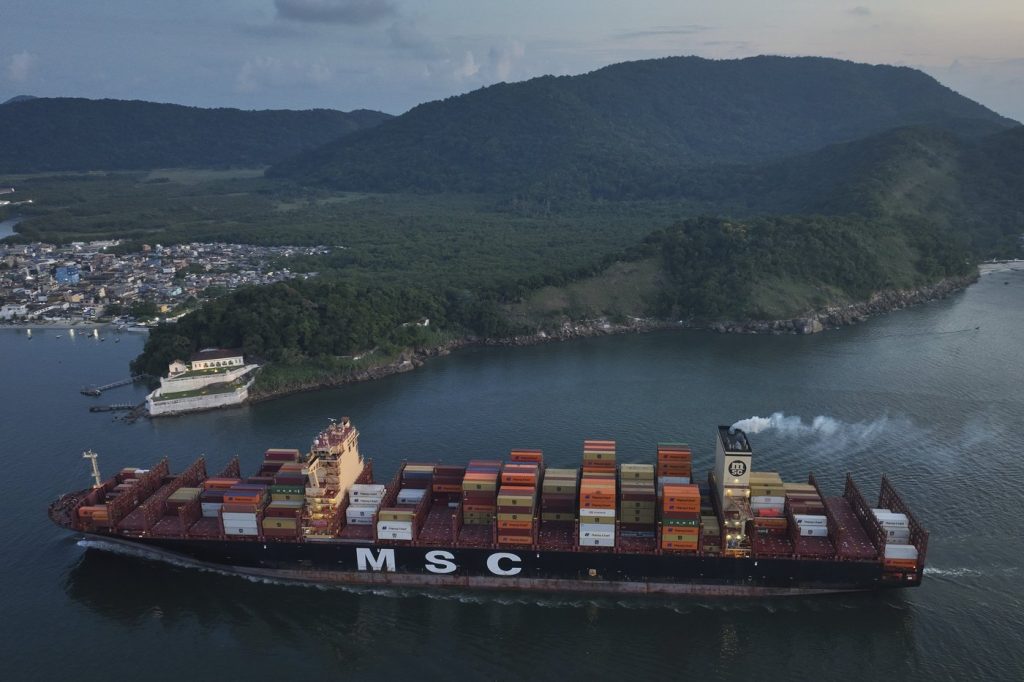Nations are currently negotiating to establish a fee for emissions from commercial vessels, potentially creating the world’s first global carbon tax. The International Maritime Organization (IMO), which oversees international shipping, has set a target for the sector to achieve net-zero greenhouse gas emissions by approximately 2050. Additionally, the organization aims to promote the widespread use of fuels with zero or near-zero emissions. The IMO's Marine Environment Protection Committee is convening in London from Monday to Friday, focusing on developing regulations that will impose a cost on maritime emissions and set standards for cleaner marine fuels.
IMO Secretary-General Arsenio Dominguez emphasized that these regulatory measures will go beyond mere aspirations and will become mandatory for ships operating internationally. He stated that the committee is poised to "set the course for a net-zero future for the maritime sector." The discussions center on how to efficiently reduce carbon pollution in shipping, which, according to experts, requires a straightforward and equitable flat-rate levy on greenhouse gas emissions.
Emma Fenton, a senior director for climate diplomacy at the U.K.-based nonprofit Opportunity Green, highlighted the significance of reaching an agreement, calling it a vital moment of solidarity in the struggle against climate change. She noted that, should an effective global framework be established, it would represent a major step forward in addressing this international issue, particularly because most emissions are dealt with on a domestic basis.
Shipping emissions have risen over the past decade and now account for around 3% of global greenhouse gas emissions, as reported by the United Nations. This increase has been attributed to the growing size of vessels, which transport larger quantities of cargo but consume significant amounts of fuel oil. In 2023, maritime nations agreed to reduce emissions from the shipping sector, although critiques arose regarding the absence of a firm deadline for 2050. Currently, the IMO is working to adopt regulations that align with the agreed-upon goals from 2023.
Implementing a climate levy alongside a green fuel standard could bridge the cost disparity between traditional fossil fuels and greener alternatives, such as hydrogen, methanol, and ammonia. Jesse Fahnestock, head of the decarbonization work at the Global Maritime Forum, pointed out that the shipping sector heavily relies on fossil fuels, and a transition to sustainable options will not occur organically. Immediate investments are essential to foster the development of e-fuels derived from renewable energy sources.
The Clean Shipping Coalition is advocating for governments to enact a high price on all ship emissions along with a robust fuel standard. They are also urging a revision of the IMO’s metrics for measuring a ship’s carbon intensity to ensure transparency and facilitate improvements in fuel efficiency over time.
The negotiations are being led by Pacific island nations, which face existential threats due to climate change. Over 60 countries support the implementation of a flat levy based on emissions per metric ton as a fair means to achieve net-zero targets. Additionally, the shipping industry has expressed support for a fee; the International Chamber of Shipping, representing over 80% of the world's merchant fleet, considers pricing mechanisms for emissions a pragmatic solution that could incentivize a swift energy transition.
However, some countries, including China, Brazil, Saudi Arabia, and South Africa, are advocating for a credit trading model instead of a fixed levy. This model would enable ships to earn credits for remaining below their emissions targets while purchasing credits in the event of exceeding them. Many fear that anything less than a universal levy could hinder climate targets by allowing wealthier ship owners to continue polluting while simply buying compliance. The Ambassador Albon Ishoda from the Marshall Islands described the IMO’s climate goals as "meaningless" without the levy, arguing that levy revenues could aid developing nations in transitioning to more sustainable shipping practices.
By the end of the current meetings, if the committee agrees on and finalizes the proposed regulations, they could be formally adopted in October and take effect by 2027. This implementation would signal a significant move towards a greener transition in global shipping, demonstrating that substantial change is achievable on an international scale.










